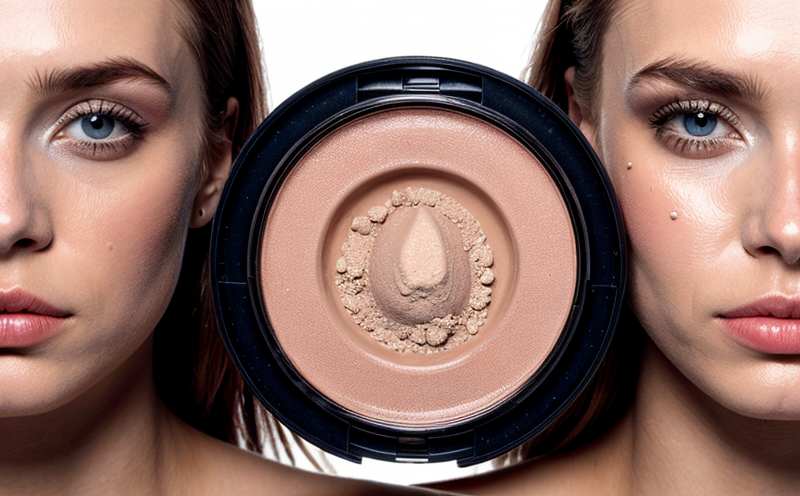Regulatory Compliance Testing for Heavy Metals in Cosmetics
In today’s competitive and ever-evolving cosmetics industry, ensuring compliance with regulatory standards is crucial. The presence of heavy metals in cosmetic products can pose serious health risks to consumers, making it imperative that manufacturers adhere strictly to regulatory guidelines.
The European Union, for instance, has stringent regulations under the Cosmetics Regulation (EC) No 1223/2009 and the EU Directive on Cosmetic Safety. These regulations mandate the testing of heavy metals such as lead, cadmium, mercury, and arsenic to ensure product safety.
Our laboratory specializes in providing comprehensive testing services for heavy metals in cosmetics. Our team of experts uses cutting-edge instrumentation and follows internationally recognized standards like ISO 17025 to deliver accurate and reliable results. Compliance with these regulations not only protects consumers but also safeguards your brand’s reputation and market access.
Our rigorous testing process involves a series of steps, starting from the initial sample collection and preparation through to final analysis. Our dedicated team ensures that every step is meticulously followed, reducing the risk of contamination or error. This comprehensive approach guarantees accurate results that meet regulatory requirements.
The significance of heavy metal testing cannot be overstated. Heavy metals can accumulate in the body over time and have been linked to various health issues including organ damage, neurological disorders, and cancer. The EU’s stringent limits on these elements highlight their potential danger and the need for thorough testing.
Our laboratory adheres strictly to the Cosmetics Regulation (EC) No 1223/2009, which sets maximum allowed concentrations of heavy metals in cosmetic products. For instance, the regulation specifies a limit of 1 mg/kg for lead and cadmium, 2 mg/kg for mercury, and 5 mg/kg for arsenic.
The process begins with sample collection and preparation. We follow strict protocols to ensure that each sample is representative of the product as a whole. Once prepared, the samples undergo detailed analysis using advanced instrumentation such as ICP-MS (Inductively Coupled Plasma Mass Spectrometry) and AAS (Atomic Absorption Spectroscopy). These techniques allow for precise quantification of heavy metals down to parts per billion.
After analysis, we provide a comprehensive report detailing the results. This includes not only the concentrations of each metal but also an evaluation against regulatory limits. Our reports are designed to be easily understood by quality managers and compliance officers, ensuring that all stakeholders have clear insights into the product’s safety profile.
The importance of this testing cannot be underestimated. A single instance of non-compliance can lead to product recalls, legal action, and significant financial losses. By investing in our comprehensive testing services, you ensure not only regulatory compliance but also a safer product for your consumers.
Applied Standards
- ISO 17025: Our laboratory is ISO 17025 accredited, ensuring that our testing and calibration services meet the highest international standards.
- EC No 1223/2009: We adhere strictly to the Cosmetics Regulation of the European Union, which sets stringent limits on heavy metal content in cosmetic products.
In addition to these core standards, we also follow other internationally recognized guidelines such as ASTM D4718 and EN 16290. These additional standards provide further assurance that our testing methods are robust and reliable.
Scope and Methodology
- Sample Collection: We work closely with manufacturers to ensure the collection of representative samples. This includes understanding the product type, packaging, and potential sources of contamination.
- Preparation: Our experts prepare samples according to predefined protocols, ensuring that any potential interference is minimized.
- Analytical Techniques: We use ICP-MS for its high sensitivity and precision, while AAS provides a robust alternative. Both methods are validated against international standards.
- Data Analysis: Our software tools automatically process data to ensure accuracy and consistency in reporting.
The methodology is designed to provide reliable results that can be trusted for regulatory compliance purposes. Each step of the process is meticulously documented, ensuring transparency and reproducibility.





